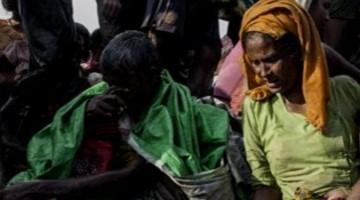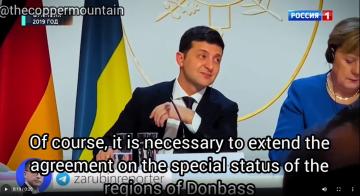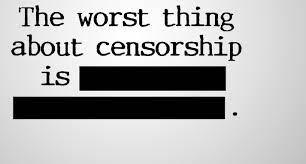The Ukraine project is an obsession of the "collective west" but global south nations are resisting intimidation and making their own decisions in regard to the conflict.
This article was produced by Globetrotter.
At the G20 meeting in Bengaluru, India, the United States arrived with a simple brief. U.S. Treasury Secretary Janet Yellen said at the February 2023 summit that the G20 countries must condemn Russia for its invasion of Ukraine and they must adhere to U.S. sanctions against Russia. However, it became clear that India, the chair of the G20, was not willing to conform to the U.S. agenda. Indian officials said that the G20 is not a political meeting, but a meeting to discuss economic issues. They contested the use of the word “war” to describe the invasion, preferring to describe it as a “crisis” and a “challenge.” France and Germany have rejected this draft if it does not condemn Russia.
Just as in Indonesia during the previous year’s summit, the 2023 G20 leaders are once again ignoring the pressure from the West to isolate Russia, with the large developing countries (Brazil, India, Indonesia, Mexico, and South Africa) unwilling to budge from their practical view that isolation of Russia is endangering the world.
The next two G20 summits will be in Brazil (2024) and South Africa (2025), which would indicate to the West that the platform of the G20 will not be easily subordinated to the Western view of world affairs.
Most of the leaders of the G20 countries went to Bengaluru straight from Germany, where they had attended the Munich Security Conference. On the first day of the Munich conference, France’s President Emmanuel Macron said that he was “shocked by how much credibility we are losing in the Global South.” The “we” in Macron’s statement was the Western states, led by the United States.
What is the evidence for this loss of credibility? Few of the states in the Global South have been willing to participate in the isolation of Russia, including voting on Western resolutions in the United Nations General Assembly. Not all of the states that have refused to join the West are “anti-Western” in a political sense. Many of them—including the government in India—are driven by practical considerations, such as Russia’s discounted energy prices and the assets being sold at a lowered price by Western companies that are departing from Russia’s lucrative energy sector. Whether they are fed up with being pushed around by the West or they see economic opportunities in their relationship with Russia, increasingly, countries in Africa, Asia, and Latin America have avoided the pressure coming from Washington to break ties with Russia. It is this refusal and avoidance that drove Macron to make his strong statement about being “shocked” by the loss of Western credibility.
At a panel discussion on February 18 at the Munich Security Conference, three leaders from Africa and Asia developed the argument about why they are unhappy with the war in Ukraine and the pressure campaign upon them to break ties with Russia. Brazil’s Foreign Minister Mauro Vieira—who later that day condemned the Russian invasion of Ukraine—called upon the various parties to the conflict to “build the possibility of a solution. We cannot keep on talking only of war.”
Billions of dollars of arms have been sent by the Western states to Ukraine to prolong a war that needs to be ended before it escalates out of control. The West has blocked negotiations ever since the possibility of an interim deal between Russia and Ukraine arose in March 2022. The talk of an endless war by Western politicians and the arming of Ukraine have resulted in Russia’s February 21, 2023, withdrawal from the New START treaty, which—with the unilateral withdrawal of the U.S. from the Anti-Ballistic Missile Treaty in 2002 and the Intermediate Nuclear Forces Treaty in 2019—ends the nuclear weapons control regime.
Vieira’s comment about the need to “build the possibility of a solution” is one that is shared across the developing countries, who do not see the endless war as beneficial to the planet. As Colombia’s Vice President Francia Márquez said on the same panel, “We don’t want to go on discussing who will be the winner or the loser of a war. We are all losers, and, in the end, it is humankind that loses everything.”
The most powerful statement in Munich was made by Namibia’s Prime Minister Saara Kuugongelwa-Amadhila. “We are promoting a peaceful resolution of that conflict” in Ukraine, she said, “so that the entire world and all the resources of the world can be focused on improving the conditions of people around the world instead of being spent on acquiring weapons, killing people, and actually creating hostilities.” When asked why Namibia abstained at the United Nations on the vote regarding the war, Kuugongelwa-Amadhila said, “Our focus is on resolving the problem… not on shifting blame.” The money used to buy weapons, she said, “could be better utilized to promote development in Ukraine, in Africa, in Asia, in other places, in Europe itself, where many people are experiencing hardships.” A Chinese plan for peace in Ukraine—built on the principles of the 1955 Bandung Conference—absorbs the points raised by these Global South leaders.
European leaders have been tone-deaf to the arguments being made by people such as Kuugongelwa-Amadhila. The European Union’s High Representative for Foreign Affairs and Security Policy Josep Borrell had earlier shot himself in the foot with his ugly remarks in October 2022 that “Europe is a garden. The rest of the world is a jungle. And the jungle could invade the garden… Europeans have to be much more engaged with the rest of the world. Otherwise, the rest of the world will invade us.” In the February 2023 Munich Security Conference, Borrell—who is originally from Spain—said that he shared “this feeling” of Macron’s that the West had to “preserve or even to rebuild trustful cooperation with many of the so-called Global South.” The countries of the South, Borrell said, are “accusing us of [a] double standard” when it comes to combating imperialism, a position that “we must debunk.”
A series of reports published by leading Western financial houses repeat the anxiety of people such as Borrell. BlackRock notes that we are entering “a fragmented world with competing blocs,” while Credit Suisse points to the “deep and persistent fractures” that have opened up in the world order. Credit Suisse’s assessment of these “fractures” describes them accurately: “The global West (Western developed countries and allies) has drifted away from the global East (China, Russia, and allies) in terms of core strategic interests, while the Global South (Brazil, Russia, India, and China and most developing countries) is reorganizing to pursue its own interests.”
This reorganization is now manifesting itself in the refusal by the Global South to bend the knee to Washington.
Vijay Prashad is an Indian historian, editor, and journalist. He is a writing fellow and chief correspondent at Globetrotter. He is an editor of LeftWord Books and the director of Tricontinental: Institute for Social Research. He is a senior non-resident fellow at Chongyang Institute for Financial Studies, Renmin University of China. He has written more than 20 books, including The Darker Nations and The Poorer Nations. His latest books are Struggle Makes Us Human: Learning from Movements for Socialism and (with Noam Chomsky) The Withdrawal: Iraq, Libya, Afghanistan, and the Fragility of U.S. Power.



















